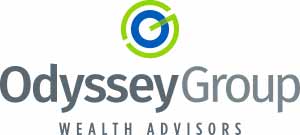
Making the decision to work with an advisor is an important first step in your financial journey. During your initial meeting, you’ll learn about the value your prospective advisor can provide, and both parties will decide if the relationship is a good fit.
Getting started with an advisor isn’t complicated, but it can be helpful to do some preparation ahead of your initial meeting, and to understand what to expect from the meeting itself.
How to prepare for your meeting
You have a general idea of your accounts, the financial issues you’re facing, and your goals, but what are the most pressing details? How much information do you really need to provide and what questions should you be asking during your first meeting with an advisor?
Below, we explain what you can expect from the process, and offer tips to help you prepare.
Questions to ask yourself
1. What am I hoping to get out of working with an advisor?
Begin by considering what you hope to gain by working with a financial expert. Do you want to be educated on specific financial topics, build an investment portfolio, reduce tax liability, or plan for retirement? Understanding your personal goals will help you narrow down and ultimately select the advisor that is best for you.
2. Am I ready to take advice from an advisor?
Working with an advisor usually means giving someone else significant influence over your financial strategy and investments. A major benefit of working with an expert is that they can help you make daunting financial decisions and provide the technical knowledge you often can’t get on your own.
3. Is the advisor I’m considering a fiduciary?
A fiduciary is legally required to put their clients’ best interests first, operate transparently, and minimize conflicts whenever possible. You might think to yourself, “Of course I want a fiduciary. Why isn’t every advisor one?”
Only registered investment advisors, who are providing advice for a fee, are legally required to be fiduciaries. Brokers, who are selling a product for commission, are held to a best interest standard. The best interest standard means advisors are only obligated to recommend products they believe are in the best interest of a client at that specific point in time.
Understanding the difference can and should influence what kind of advisor you choose.
What to expect during your meeting
In addition to learning about the value you’ll receive and the costs associated with hiring an advisor, your first meeting will consist of a high-level review of your assets, debts, investments, and goals. You don’t need to bring every financial document you can think of to your first appointment, but for an accurate assessment we recommend providing the following:
- Bank statements
- Investment statements
- Insurance policies
- 401(k) statements
- Debt account statements
- Recent Income tax returns
If you’re married you should also plan to have your spouse attend, especially if you share accounts and assets.
What you will discuss
When it comes to financial planning, there is no one-size-fits-all approach. Advisors will work to tailor a plan to you, and it all starts with the initial financial planning meeting.
Expect to have a conversation where you share your story, goals and dreams, along with your financial circumstances. A good advisor will want to know and understand as much about you as possible. It is only by truly getting to know each client that an advisor can offer the best guidance and value.
What the relationship looks like moving forward
During your initial meeting, you should also expect clarity around an ongoing communication and meeting cadence, as well as who your main point of contact will be going forward. While there are still plenty of solo practitioners who do it all, including acting as your point person, most financial firms are moving towards a team-based approach. The latter benefits from the skills of a larger staff to help deliver flawless execution of your financial strategy. This could mean that the advisor you meet with at your initial consultation may not be the person who you’ll end up working with, however, and you should make sure you have a clear understanding of who will be your primary point of contact throughout your relationship.
Whether you’d like to meet in-person, by phone, or virtually, The Odyssey Group is eager to listen to your concerns, answer your questions and offer our advice. Contact us here to schedule a no-obligation consultation today!



